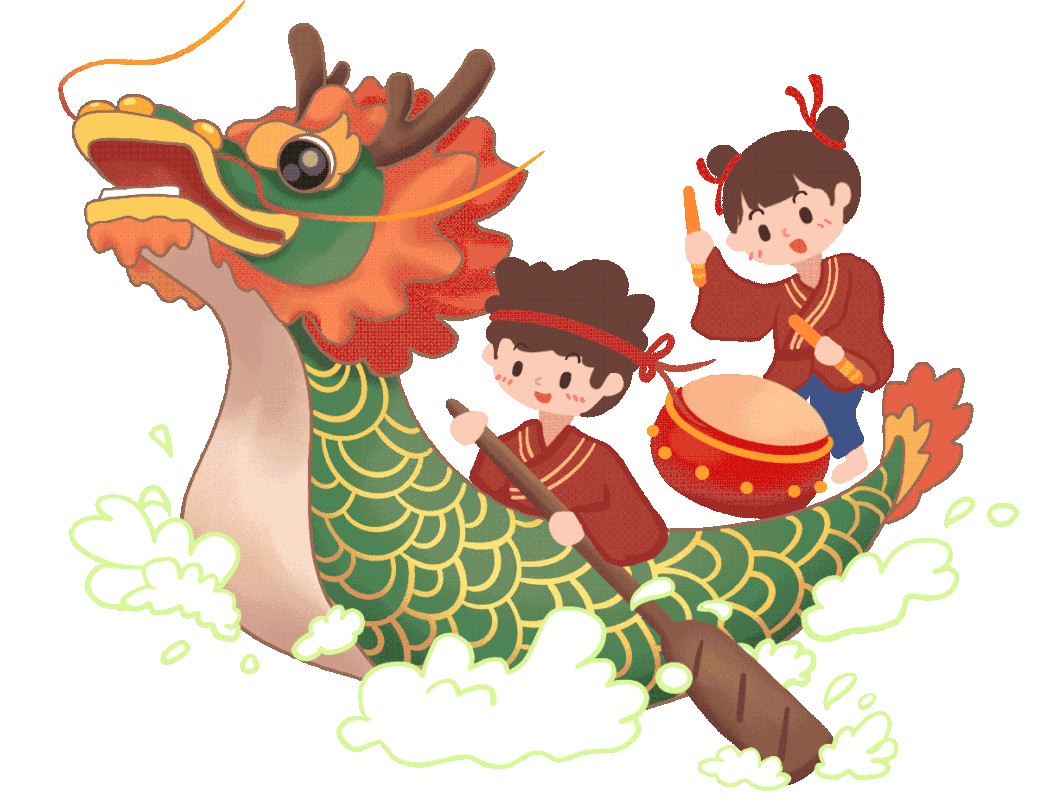
The fifth day of the fifth lunar month is a traditional festival in China - the Dragon Boat Festival. For more than 2000 years, the Dragon Boat Festival has been a festival for all ethnic groups in China to commemorate folk customs. From dragon boat riding, eating Zongzi, and planting calamus in ancient times to today's national fitness, epidemic prevention and disease elimination, avoiding plague and summer heat, and praying for health, many ancient customs have been passed down completely.
The Origin and Legend of Dragon Boat Festival
There are various theories about the origin of the Dragon Boat Festival, from celebrity stories to seasonal legends. There have been multiple versions such as the "Qu Yuan Theory", "Wu Zixu Theory", and "Summer Solstice Theory". Do you know all of them?
In Memory of Qu Yuan
According to historical records, on the fifth day of the fifth lunar month in 278 BC, Qu Yuan, a high-ranking official of the State of Chu, wrote his masterpiece "Huaisha" in grief and anger upon hearing the news that the Qin army had captured the capital of the State of Chu, and threw himself into the Miluo River to die for his country. When people along the river knew about it, they carried boats to salvage it and threw Zongzi into the river to prevent fish and shrimp from eating his body. Later, the custom of eating Zongzi was formed on this day. Therefore, the Dragon Boat Festival is also called "Zongzi Festival".
In Memory of Wu Zixu
In addition to commemorating Qu Yuan, there is also a legend that during the Spring and Autumn period, after the father and brother of Wu Zixu, a native of Chu, were killed by the cruel King Ping of Chu, he fled to Wu to help Wu become stronger step by step and conquer Chu to avenge his father and brother.
Summer solstice theory
In 1983, Mr. Liu Deqian proposed in his book "A Theory on the Origin of the Dragon Boat Festival" that it originated from the summer solstice of the Xia, Shang, and Zhou dynasties. His explanation was derived from the description of the Dragon Boat Festival in "Suihua Jier", which stated that "the sun is shining on the leaves, and the time is mid summer." This means that the Dragon Boat Festival is in the middle of summer, so it is also known as the "Summer Festival" or "Tianzhong Festival". As for the custom of racing and eating Zongzi, people in the Sui Dynasty regarded them as entertainment activities on the summer solstice, rather than the poet Qu Yuan who salvaged the river.
Evil Sun Theory
In the pre Qin period, the ancients generally believed that May was the month of poison. According to legend, on the fifth day of the fifth lunar month, evil craftsmen were in power and the five poisons emerged simultaneously. Therefore, the fifth day of the fifth lunar month was considered an "evil day". In "L ü Shi Chun Qiu", there is a chapter that stipulates: people should abstain from desires and fast on this day; After the pre Qin period, this day was also considered an unlucky day. People would insert mugwort leaves to ward off disasters and evil spirits, and drink realgar wine to avoid epidemics.

The customs of the Dragon Boat Festival
There are so many aliases for the Dragon Boat Festival, isn't it because there are also many customs?
Indeed, but they can be roughly divided into two categories:
One type is sacrifice, which is the use of dragon totems for worship, such as dragon boat races.
The other is to drive disasters away, that is, to eliminate poison, evil, evil and ghosts, such as eating Zongzi, hanging wormwood, or drinking realgar wine.
Dragon boat racing
From the story of "commemorating Qu Yuan" in which fishermen rowed boats to search for Qu Yuan, it has evolved to the days before and after the Dragon Boat Festival, where "dragon boat races" are held in both the north and south of the Yangtze River. The boatmen on the dragon boat paddle and compete at speed on the river, which has a history of more than 1500 years in China.
Eating Zongzi
In memory of Qu Yuan, people in the State of Chu used bamboo tubes to hold rice and threw it into the river for a memorial ceremony. This is the origin of the earliest Zongzi in China - tube zongzi. After thousands of years of inheritance and development, most of the current Zongzi are wrapped in Ruo leaves and made of glutinous rice and yellow rice. Different regions have different practices, such as sweet zongzi with different tastes, meat zongzi with different materials, etc.
Hanging mugwort
The reason why the fifth day of the fifth lunar month in history is called "Poison Day" is because in May, the climate gradually rises and it is also the rainy season, with more mosquitoes and heavy humidity. The ancients believed that May was the "Poison Month". In the "Jingchu Suishi Ji", it is recorded that "picking mugwort is like a person, hanging it on the door to ward off poisonous gas." It is written that mugwort is a medicinal plant that can both treat diseases and repel insects. Ancient people often hung several mugwort plants at their doorstep to prevent mosquitoes and ward off evil spirits.
Realgar wine
Realgar and traditional Chinese medicine can be added to wine to make medicinal wine. Therefore, drinking realgar wine was also a custom of ancient people to avoid plague and poison. But in ancient times, many places only mixed realgar with wine, sun dried it, and applied it to children's foreheads and noses for treatment, and did not drink it. Because although realgar can be used in traditional Chinese medicine, it is toxic. Do not drink it hastily.